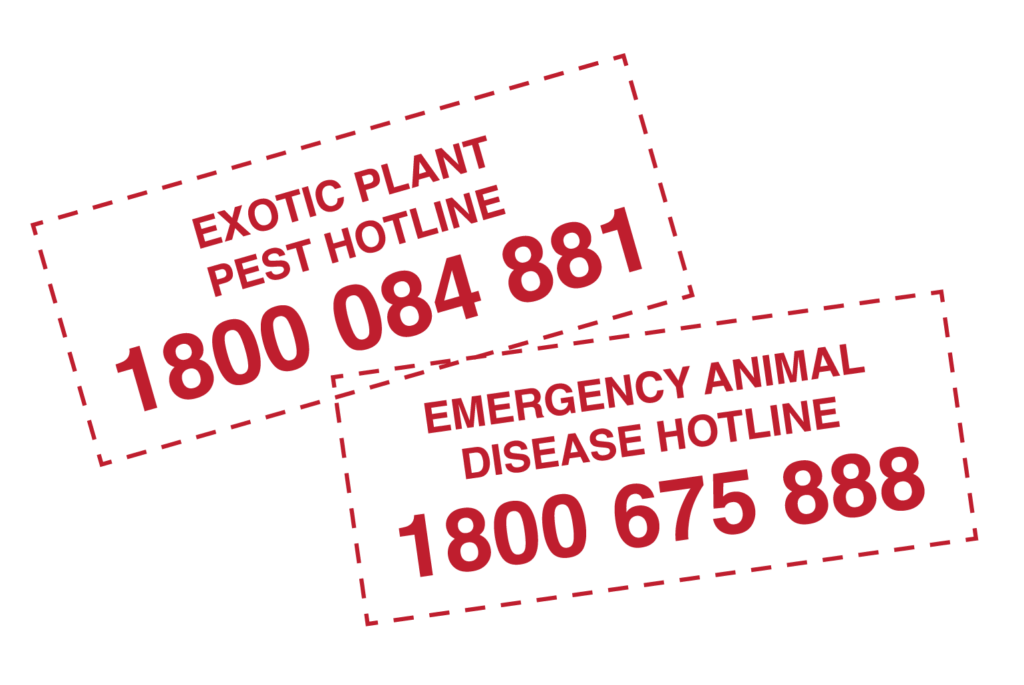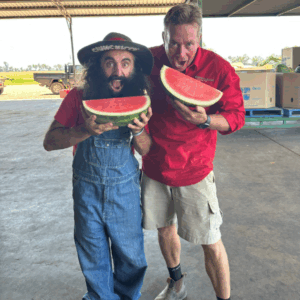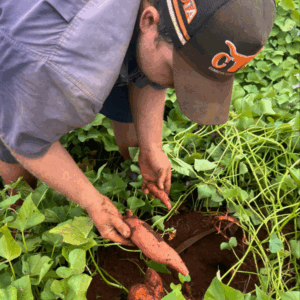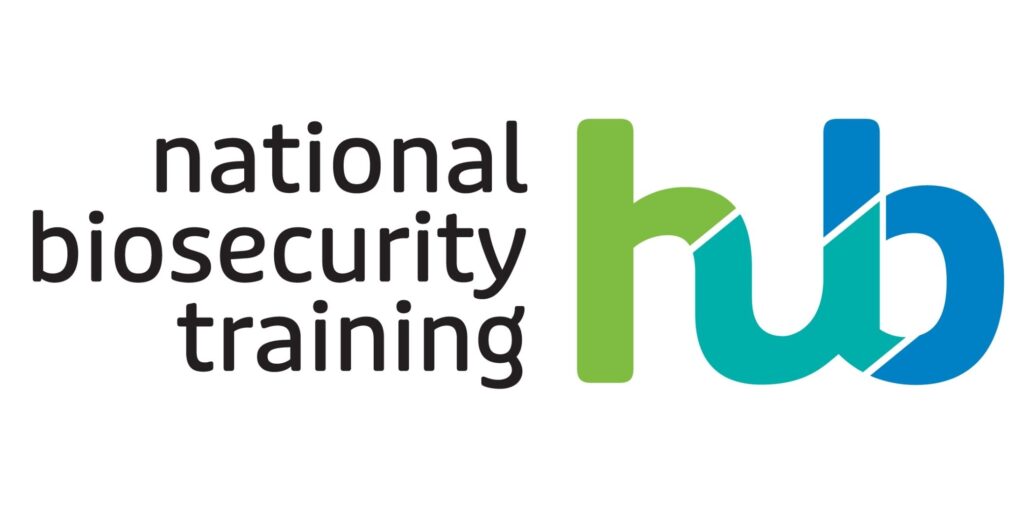
Biosecurity happens near you!
You might think biosecurity is just for farmers or airport officials – but it actually starts with everyday actions that you can play a part in too!
Biosecurity is happening everywhere– even in your town, school, or backyard. What you do in your local area can directly affect nearby farms and ecosystems.
Simple actions, like bringing fruit across a state border or not cleaning your boots after a bushwalk, can spread pests and diseases fast. That’s why everyone has a role to play – not just people in agriculture.
Farms are often close to towns and schools. That means what happens in your community can directly affect them. Something as simple as bringing fruit from one place to another, or not cleaning your boots after a bushwalk, can spread pests and diseases quickly. That is why biosecurity is not just for people in agriculture – it’s something everyone needs to care about.
Here’s how people in your community are helping protect Australia every day:

- Reporting strange insects or sick plants in gardens or parks. If you see something odd, tell a parent, teacher, or call the biosecurity hotline.
- Checking backyard vegie patches and pets for signs of pests or disease.
- Not bringing fruit or vegetables across borders, especially into states like South Australia or Tasmania–they have strict biosecurity laws.
- Supermarkets tracking where food comes from, so we get safe, high-quality fruit, veggies, meat, and seafood.
If people ignore these things, the consequences hit fast, especially for farmers. Check out the video below to see what it might look like if you do not play your part:
Now that you know that local farmers rely on the broader Australian community to help protect their plants and animals, check out some profiles of Australian farmers below talking about why biosecurity is important to them:
Sustainability and climate change
Good biosecurity also supports a healthy planet.
- Less pests = fewer chemicals needed
- Clean soil, air and water
- Healthy crops and animals
- Less food waste
Biosecurity also protects global food trade. If another country has a dangerous pest, Australia might have to stop importing their fruit. That could make food more expensive or harder to find.
As the climate warms, pests and diseases can survive in places they never could before. More storms, floods, and droughts also spread pests faster. That’s why biosecurity strategies need to evolve to protect Australia’s
- crops
- wildlife
- communities.
We all have a part to play to protect the future in a changing world.
Without biosecurity, we couldn’t safely import food from other countries. If another country had a pest that could hurt our farmers, Australia might have to stop importing their fruit. That could make food more expensive or harder to find.
You can help!
You don’t have to be a scientist to make a difference. Here’s how you can be a biosecurity legend:
- report any strange insects or plants
- don’t pack fruit or veg when travelling
- use quarantine bins at state borders
- clean your boots and check pets after outdoor trips.
Small actions = big impact.
Want to boost your biosecurity knowledge? Click on the logos below to explore e-learning courses and macro pest images:
Careers in biosecurity
Want a job that helps protect Australia’s environment, animals, and food? Biosecurity has heaps of awesome career options–whatever you’re into.
You could be:
- a scientist who studies plant pests and diseases
- a vet who keeps animals healthy
- a quarantine officer at airports or shipping ports
- a farmer using smart biosecurity on their property
- a drone pilot spotting problems from the sky.
Whether you’re into nature, animals, science, or tech, there’s a role for you. Watch the videos below to meet real people working in biosecurity and see what a day in their job looks like.
Melon farmer: Terry O’Leary
When we are thinking about biosecurity – that’s the key in the word. It’s security, not damage control. Stopping something before it happens is clearly the better option over playing catchup after the event. Complacency about letting something slip through, which can cost your business is a poor practice over the value of prevention and building plans around this. Some things will slip through, however having a reasonable understanding of how to minimise the risk can help minimise the control efforts needed, in many scenarios.

Sweetpotato farmer: Ethan Zunker
Ethan (pictured) and Emily Zunker produce many different cultivars of sweetpotatoes, as well as other annual and perennial crops, on their family farm Zunker Ag, in the heart of Australia’s sweetpotato growing district – Bundaberg, Queensland
Biosecurity important to the sweetpotato industry because viruses, nematodes, and soil-borne diseases are continuously threatening sweetpotato production and quality. For our family farm to sustainably and profitably continue, we need good on-farm and national biosecurity programs, to minimise the impacts of these pests and diseases.

Cotton Australia Director: Nigel Burnett
Biosecurity is important as it’s one of our biggest risks. It may be hidden in some ways and not front of mind, but biosecurity can impact us in a massive way. If it slips under the radar the risk to our production system is very high. If we had an incursion, we may not be able to grow cotton in this area and that would have a major impact on the local community.

Australian Banana Growers Council Director: Tayla Mackay
Biosecurity is crucial for the future of banana farming in Australia. It’s our frontline defence against serious pests and diseases and it is essential for the sustainability and profitability of our farming businesses.
Working with detector dogs: A Day in the Life of a Handler
Careers in agriculture, it’s more than just farming!
Managing High-Risk Animals and Plants at the Quarantine Facility
Plant Pathologist
Northern Australia Quarantine (vets)
Working as a plant biosecurity officer
Explore our online library
There’s plenty more to discover and satisfy your curiosity
Resources for Teens
